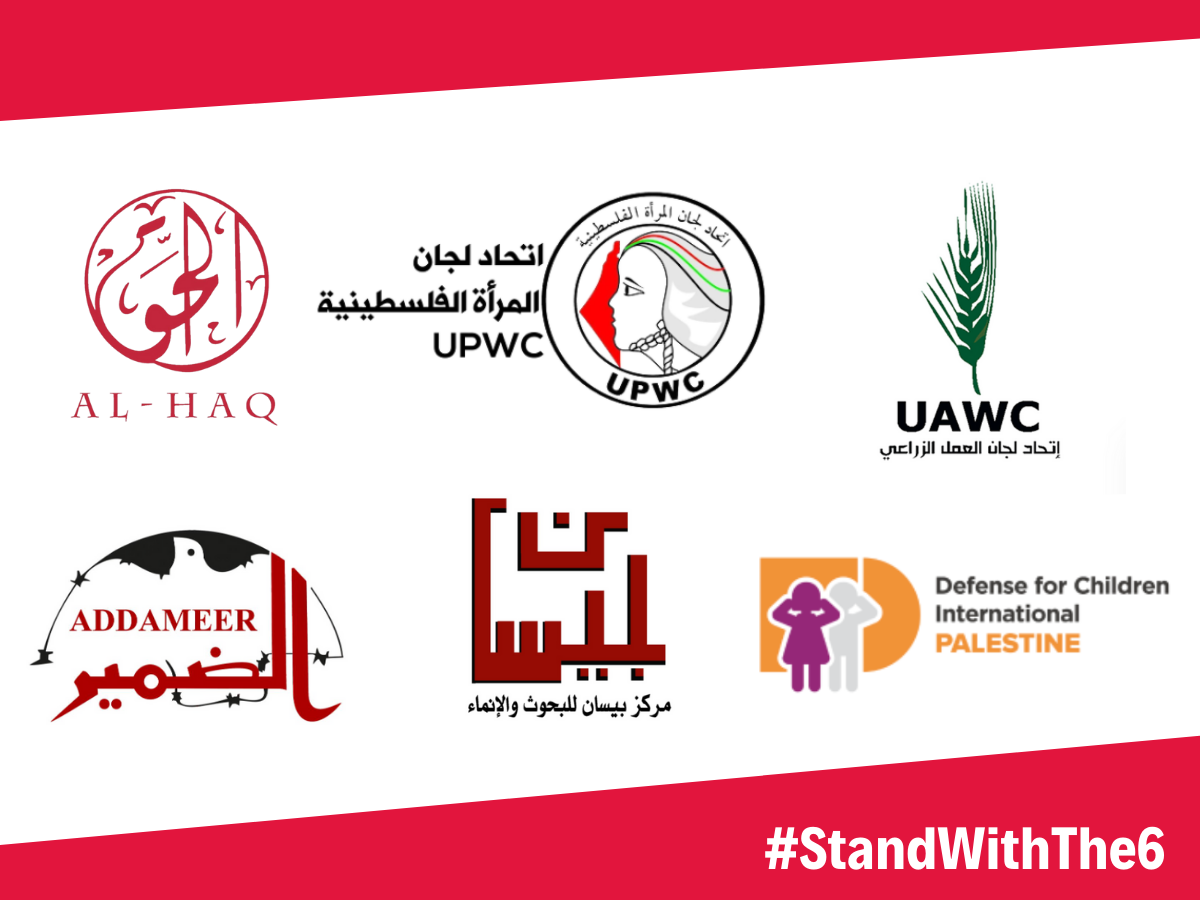A classified CIA report shows the agency was unable to find any evidence to support Israel’s decision to label six prominent Palestinian NGOs as “terrorist organizations”.

In October, Israel labeled as terror groups Addameer Prisoner Support and Human Rights Association, Al-Haq, the Bisan Center for Research and Development, Defense for Children International–Palestine, the Union of Agricultural Work Committees, and the Union of Palestinian Women Committees.
Israel claimed that the organizations were front groups for the Popular Front for the Liberation of Palestine (PFLP), a leftist political party that has a paramilitary branch.
Earlier this year, Israel passed intelligence about the designation to the US, but a CIA intelligence assessment of the material did not find any evidence to support the claim, according to two sources familiar with the study.
The CIA report “doesn’t say that the groups are guilty of anything,” one source said. The assessment was highly classified, a second source said.
Numerous states, including allies of Israel, have rejected the terror designation as unfounded.
The United States has not publicly criticized or questioned it, but neither has it placed the groups under a US terror designation.
In light of the CIA’s assessment, “the United States should very clearly call on the Israeli government to reverse these designations, and to allow these organizations to continue their vital work,” said Omar Shakir, Israel/Palestine director of Human Rights Watch.
“The reality here is that the United States has for too long turned a blind eye, and in some cases even green lighted, quite serious Israeli government abuses,” Shakir added.
“The position toward the Palestinian human rights organizations highlights a much larger failing in US government policy on the Israeli-Palestinian issue, and puts the United States squarely out of touch with the consensus in the human rights movement.”
Since announcing the designation, Israel has continued its efforts to stop the six NGOs from continuing their advocacy work. On Thursday, the Israeli military raided the West Bank offices of all six groups, confiscating property, sealing off office doors, and posting official notices declaring the groups illegal.
After the raids, state department spokesperson Ned Price confirmed that the US government had analyzed Israel’s evidence for the terror charge.
“What happened last year is the Israeli government designated these organizations,” he said. “We have not followed through with any designations, nor have we changed our approach to these organizations.”
Price declined to comment on the CIA report, and referred the Guardian to the CIA. The CIA did not respond to the Guardian’s questions.
The classified assessment mirrors the findings of European governments that were also shown dossiers of Israeli evidence.
Last month, nine member states of the European Union said in a joint statement: “No substantial information was received from Israel that would justify reviewing our policy toward the six Palestinian NGOs.”
The designation, according to political analysts, was intended in part to dry up the European funding streams to the Palestinian NGOs, but the tactic has proved unsuccessful.
According to Lara Friedman, the president of the Foundation for Middle East Peace, the US government’s public stance is a mixed one.
“A lot of us would have liked to see an affirmative rebuttal of the designations,” she said. “They didn’t do that, but there’s been nothing undertaken by this administration that would suggest they are viewing these organizations as terrorist organizations.”
But, she added: “The US administration has had ten months to convince Israel” to reverse the designations. “Instead, this is now Israeli law.”
A handful of US legislators have publicly criticized Israel’s terror designation.
Last month, Congresswoman Ayanna Pressley and 21 other Democrats sent a letter to Antony Blinken, the secretary of state, and Avril Haines, the director of national intelligence, urging the US government to stand up to the Israeli government.
The lawmakers wrote: “A reported lack of evidence to support this decision raises concerns that it may be a deeply repressive measure, designed to criminalize and silence prominent and essential Palestinian human rights organizations.”
According to a federal government source, Blinken has shied away from the issue of the designations since Israel announced them. “The secretary himself said basically: this isn’t something we want to touch too much.”
The source added: “Most letters written to the secretary don’t make it to his desk verbatim, in full.”
Beyond lawmakers’ public effort to address the issue, there have been private challenges to the Israeli designation.
Last year, an Israeli delegation provided a similar dossier and briefing to members of Congress. That dossier, seen by the Guardian, repeats claims that the groups are “cover institutions” for the (PFLP).
But at the briefing, there was dismay at the quality of the dossier’s evidence, said a congressional source.
Among skeptics was the Florida Democratic congressman Ted Deutch, who has described himself as “a passionate supporter of Israel”.
After receiving the dossier, said the source, Deutch told the Israeli delegation its evidence was insufficient.
Deutch’s office did not respond to a request for comment.
